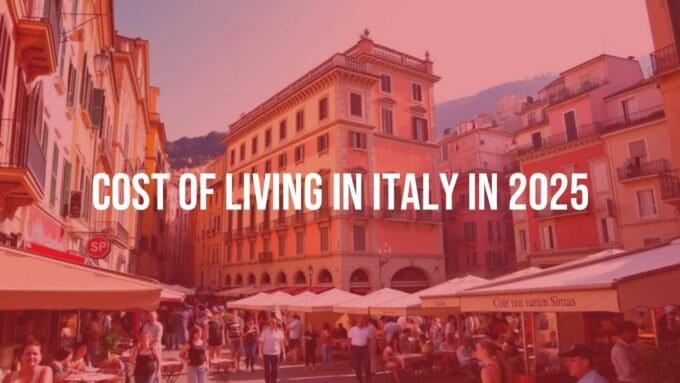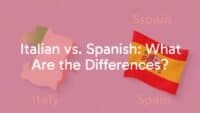If you’ve ever wondered whether you can order a cappuccino after 11 AM in Italy, you’re not alone. While it isn’t against the law, it’s rare to see Italians drinking milk-based coffee drinks past the late morning. This isn’t enforced by any rule, but rather a matter of tradition, common beliefs about digestion, and the way coffee fits into daily life in Italy.
Many tourists think ordering a cappuccino later in the day is a big mistake, but this idea comes from watching local habits and thinking they are strict rules. A barista will not refuse your order, and some younger Italians or those in cities might ignore this custom. However, learning why this tradition exists gives you a better understanding of Italian coffee culture. Cappuccino is considered part of breakfast and fits into a routine that Italians follow throughout the day.

Cappuccino in Italy: Meaning and Traditions
In Italy, coffee is more than just a drink. It’s part of daily life and social interactions. Cappuccino, with its mix of espresso, steamed milk, and foam, is special at breakfast time. It’s seen as the right way to start the day, often with a sweet pastry or croissant.
Usually, Italians enjoy cappuccino standing at the counter in a café (called a “bar” in Italy)-it’s quick, social, and energizing before starting their day, unlike sitting at a table for a long chat or using a laptop.
Why Is Cappuccino Linked with Breakfast in Italy?
In Italy, cappuccino is connected with breakfast because it contains a lot of milk and feels “heavy.” Italian breakfasts are small and sweet-just a pastry or croissant-so the cappuccino adds some calories and nutrition to start the morning. Years ago, manual workers would grab a cappuccino with a pastry before work, making a filling, satisfying breakfast. The milk in the drink, together with a sweet treat, helped provide energy without being too much for the stomach, unlike after a bigger meal.
How Do Italians Drink Cappuccino During the Day?
Italians almost always have their cappuccino in the morning, paired with a sweet pastry, before 11 AM, and usually standing at a bar. This is quick, and sitting at a table usually costs more. After breakfast time, Italians switch drinks. Coffee in Italy has a purpose at each hour of the day. Cappuccino is for breakfast; after that, drinks like espresso or macchiato are preferred for a quick burst of energy or to help digest a meal.
Why Don’t Italians Drink Cappuccino After 11 am?
The unspoken rule about not drinking cappuccino after 11 am is one of the most discussed parts of Italian coffee habits. It isn’t about being snobbish but a practical approach about eating, drinking, and digestion. This has been handed down for many years. Italians pick food and drinks not just for taste but for how they believe it affects their digestion.
Where Did the 11 AM Rule Come From?
The “11 am rule” comes from tradition, not any law. In Italy, breakfast is usually light and sweet, and cappuccino, since it’s mostly milk, fits in here for added energy. Italians think drinking milk after eating a big meal (like lunch or dinner) is bad for digestion. So, the cut-off is around 11 AM, when breakfast is over and the need for a milk-based drink is gone. After a meal, espresso or macchiato-lighter and less filling-are chosen to help with digestion.

Is This Rule Everywhere in Italy?
While most of Italy observes this rule, the level of strictness changes depending on where you are. In smaller towns or more traditional bars, the custom is more closely followed. In big cities-Rome, Florence, Milan-or in cafes that serve many tourists, you might see the rule ignored or treated casually. You may get a funny look from a local barista, but they will still make your cappuccino. A survey showed that about 69% of Italians sometimes have cappuccino after the morning, with regions in Southern Italy being stricter and Northern Italians sometimes enjoying it in the afternoon with something sweet.
Is It Ever Okay to Drink Cappuccino After 11 am?
For most Italians, it’s not seen as right to drink cappuccino after 11 am, especially after a meal. The main reason is the belief that milk isn’t good for digestion after a big lunch or dinner. Sometimes, people might laugh about it, as if you were drinking hot chocolate with pasta-just not done!
Still, there are exceptions. Younger Italians and those in Northern Italy might relax the rule, especially if they have cappuccino with a sweet treat in the afternoon, not as a drink after a meal. So, while the rule remains strong, there is some flexibility, often depending on the weather or personal habits.
Health Beliefs in Italy: Coffee and Digestion
Italians think a lot about digestion when it comes to what and when they eat or drink. It’s common to hear people talk about digestion in daily life-even in TV ads. This thinking affects why cappuccino, because of the milk, is seen as a morning-only drink.
What Do Italians Think About Milk and Digestion After Breakfast?
Most Italians believe that milk after breakfast, especially after a big meal, can make it harder to digest. Science doesn’t necessarily back this up, but it’s a well-accepted tradition. A cappuccino’s milk is thought to be heavy on the stomach after lunch or dinner. That’s why, once breakfast is over, milk-based drinks are set aside, and espresso or macchiato become the coffee choices for the rest of the day.

Is Cappuccino Thought to Be Hard on the Stomach Later in the Day?
Yes, many Italians think cappuccino is hard to digest if drunk in the afternoon or evening. The main problem is the amount of milk. After a filling meal, the idea is that milk makes digestion more difficult and may cause discomfort. Although the science may be unclear, this belief is very strong, and it shapes when and how Italians choose their coffee during the day.
Different Regions and Generations: Coffee Traditions in Italy
Italy may seem to have one set coffee tradition, but habits change depending on the region and age group. While one area might strictly follow the morning-only rule, another might be more relaxed. Younger people also help create changes in long-standing habits.
Do Coffee Habits Change in Different Italian Cities?
Yes. Southern Italy sticks to the “no cappuccino after 11 am” rule more closely, and ordering one later might surprise or amuse the people working in the café. In the north, in cities like Milan or Turin, people might have cappuccino in the afternoon with something sweet, especially in winter. Central Italy can be a mix of both, and tourist-friendly spots everywhere are more accepting and used to travelers ordering drinks when they want.
Are Younger Italians Changing Coffee Habits?
Yes, the younger generation is more relaxed about the old coffee traditions, including when to drink cappuccino. Some are happy to order cappuccino whenever it feels right, especially as a snack or warm drink in the afternoon. This reflects a general trend towards choosing what you like, rather than following strict traditions, even if they know the reasons for the old habits.
Modern Views on the Cappuccino Rule
As international trends spread and life in cities changes, some of the old rules around coffee are slowly becoming less important. People debate whether the 11 am rule should still matter, and younger Italians and those living in big cities are more likely to ignore it.
Is the 11 am Rule Still Important?
The 11 am rule is still followed by many, but it’s not as strictly enforced as it once was, especially in cities and among younger people. For many, it’s more about the situation-for example, having cappuccino as a snack rather than as part of a meal-than sticking to the hour. International chains and new cultural influences also play a role in relaxing the old customs. While some people still stick to tradition, Italian coffee culture is changing, just like anywhere else.
How to Order Coffee in Italy: Tips for Visitors
For travelers, learning the basics of Italian coffee habits can make your visit easier and more enjoyable. Most Italians are patient with tourists who don’t know all the local customs, but picking up a few helpful tips can make your experience smoother and help you fit in.
What Happens If You Order a Cappuccino After 11 am?
If you ask for a cappuccino after 11 AM, especially in a traditional café, the barista will almost always serve you without complaint. However, you might notice a raised eyebrow, a small joke, or someone mentioning that it’s “not good for digestion.” The most you’ll get is probably a friendly tease. You won’t be turned away-the worst that will happen is a look that tells you you’re not blending in like a local.
Simple Tips for Ordering Coffee Like an Italian
- Be specific: If you want a cappuccino, ask for it by name. “Caffè” means espresso. If you want a small amount of milk, try a “caffè macchiato.” Don’t order a “latte” unless you want plain milk.
- Stand at the bar: Italians usually drink their coffee standing up. It’s faster and cheaper than sitting, which may cost extra.
- Pay first (in many places): At busy cafés, you might pay at the counter first, then show your receipt to the barista to get your coffee.
- Cappuccino is for breakfast: It’s best to have cappuccino only in the morning. After that, switch to espresso or caffè macchiato.
- Add sugar if you want: Coffee is served without sugar unless you add it yourself. There are sugar packets or dispensers available.
- Drink quickly: Coffee in Italy is not for lingering-usually, it’s finished in a few sips, especially espresso.

Questions Travelers Ask About Cappuccino and Italian Coffee Culture
The subject of drinking cappuccino after 11 am in Italy often brings up lots of questions from travelers. Here are some simple answers to help clear things up, so you can enjoy Italian coffee culture more confidently.
Do Tourists Get Judged for Having Cappuccino After 11 am?
Tourists do not get treated badly for ordering cappuccino later in the day. Italians understand that travelers may not know all their customs. You might get a funny comment about digestion or just a knowing smile, but you won’t be refused service. At most, you’ll stand out as a tourist, so don’t worry if you want an afternoon cappuccino.
Can You Have a Cappuccino with Lunch or Dinner?
Ordering a cappuccino with or right after lunch or dinner is strongly discouraged in Italy. Most Italians really believe milk is bad for digestion after a big meal. Instead, espresso is always the drink of choice after eating, because it’s seen as helpful for digestion and gives a quick energy lift. If you try to order a cappuccino at this time, you may get a surprised look or even direct advice from the staff.
What Do Italians Drink After 11 am Instead of Cappuccino?
Once the morning is over, Italians usually switch to coffee drinks with little or no milk. Popular choices include:
- Caffè (Espresso): The basic Italian coffee, small and strong, usually enjoyed in a few sips.
- Caffè Macchiato: Espresso with just a hint of milk foam. It gives a little creaminess, but much less than cappuccino.
- Caffè Lungo: Espresso made with extra water so it’s a bit more to drink, but still strong.
- Caffè Americano: An espresso with added hot water, closer to what some visitors might think of as “regular coffee.”
- Marocchino: Espresso with a small amount of steamed milk and some chocolate, usually seen as a treat.
When it’s hot outside, Italians also enjoy cold espresso drinks like “caffè freddo” (cold espresso) or “shakerato” (espresso shaken with ice and sugar).













Leave a comment